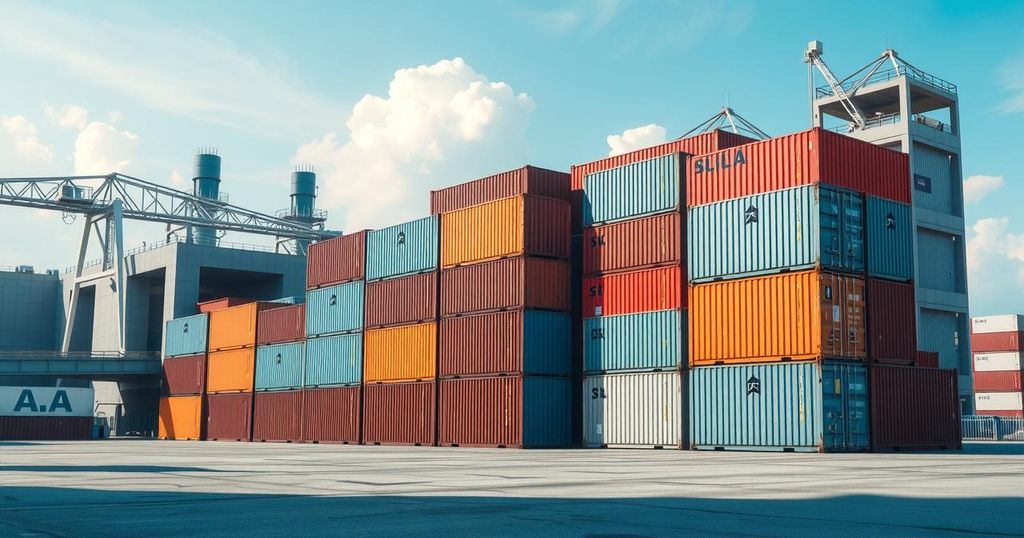President Trump’s tariffs on Canada, Mexico, and China have prompted backlash and retaliatory measures from these countries. Canada’s Prime Minister Justin Trudeau and Mexico’s President Claudia Sheinbaum have announced counter-tariffs, each emphasizing the potential harm to American consumers. China issued discontent over the tariffs and is preparing its own measures. The EU suspects it may face similar tariffs, while the UK cautiously explores trade negotiations with the U.S.
Following President Trump’s recent imposition of 25% tariffs on imports from Canada, Mexico, and China, reactions have poured in from across the globe. In Canada, sports fans expressed their displeasure by booing the U.S. national anthem, signaling waves of frustration stemming from this unilateral decision. Meanwhile, the governments of Canada and Mexico are convening discussions with the White House regarding potential paths forward in this burgeoning trade conflict. Both nations have pledged to launch retaliatory trade measures in response to the tariffs.
Mexico’s President Claudia Sheinbaum announced that the tariffs on her country would be temporarily paused for one month, following an agreement with President Trump to strengthen border security against drug trafficking. In return, Mexico would deploy 10,000 National Guard members for this purpose, thereby preventing the influx of illicit drugs and unauthorized migration into the United States. Trump publicly acknowledged this arrangement through social media.
China, similarly affected, has voiced its disapproval regarding the new tariffs. The Chinese Ministry of Commerce stated its dissatisfaction and signaled intentions to respond with corresponding measures. Furthermore, Trump justified the levies partly due to China’s insufficient actions in curbing the flow of fentanyl, which he seeks to address through these tariffs. Beijing characterized its counternarcotics policies as stringent and seized the opportunity to urge cooperation instead of punitive measures.
The European Union is warned that it might soon face similar tariffs unless it alters its trading practices with the United States. Trump accused the EU of taking advantage of American commerce, while European leaders are congregating to formulate a united response. EU officials have cautioned that no party emerges victorious from trade wars, emphasizing the interconnected nature of global economies.
For the United Kingdom, the situation presents a dilemma. While Mr. Trump suggested a willingness to negotiate a trade deal, Prime Minister Keir Starmer is striving to assert a robust trading connection with the U.S. as he also navigates post-Brexit relations with the EU. Starmer’s government aims to strike a balance; reestablishing beneficial trade paths while preventing tensions with domestic constituents who supported Brexit. Ultimately, the ramifications of these tariffs could dictate future U.S.-U.K. trade dynamics significantly.
The article discusses the international ramifications of President Trump’s recent tariffs on imports from Canada, Mexico, and China. It highlights the immediate emotional and economic responses from these affected countries, as well as impending trade wars with potential repercussions for the European Union and the United Kingdom. Understanding these events requires consideration of the intricate trade relationships between the U.S. and its neighbors, as well as the historical context of trade agreements and conflicts. Furthermore, it underscores the delicate balance leaders must maintain in navigating both domestic and foreign policy amid rising tensions.
The imposition of tariffs by the Trump administration has initiated a wave of international reactions, particularly from Canada, Mexico, and China, each of which has announced plans for retaliatory measures. With impending tariffs threatening the European Union and potential negotiations on the horizon for the United Kingdom, the article illustrates significant geopolitical tensions while emphasizing the complexity of global trade dynamics amid unilateral actions. The unfolding situation will likely shape future economic relationships and trade policies across the globe.
Original Source: www.cbsnews.com






